 |
|
|
Associate Professor
Department of Modern Languages
College of William and Mary
Tony Anemone received his B.A. from Columbia
University and Ph.D. from the University of California at Berkeley, and
has taught Russian language, literature, film and Cultural Studies at
William and Mary since 1992. In addition to numerous articles on
Russian literature (for example, on Konstantin Vaginov, Mikhail Bakhtin,
Daniil Kharms, Boris Poplavsky, Vladimir Nabokov, Leo Tolstoy) and
culture (The Kunstkamera of Peter the Great), he has written on the
films of Balabanov, Sokurov, and Aleksei German. His recent review of
Aleksei German, Jr.'s Gaspartum appears in the April 2006 issue
of KinoKultura. Ph.D. from the University of California at Berkeley, and
has taught Russian language, literature, film and Cultural Studies at
William and Mary since 1992. In addition to numerous articles on
Russian literature (for example, on Konstantin Vaginov, Mikhail Bakhtin,
Daniil Kharms, Boris Poplavsky, Vladimir Nabokov, Leo Tolstoy) and
culture (The Kunstkamera of Peter the Great), he has written on the
films of Balabanov, Sokurov, and Aleksei German. His recent review of
Aleksei German, Jr.'s Gaspartum appears in the April 2006 issue
of KinoKultura. |
 |
| |
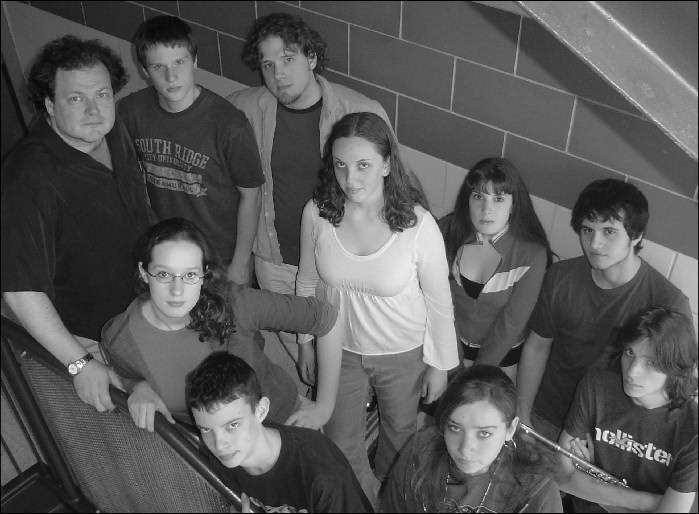
The ensemble:
Gabe Antkowski:
flute
Richard Dannenberg: cello
Emily Hawkins: mallets,
percussion
Vincent Lane: clarinet
Jeff Morgan: bass, percussion
Laura Santoro: bassoon
Natalie Somerville: viola
Alyssa Weisensee: flute
CAPA Antithesis is a recently-formed new music ensemble based out of
Pittsburgh's Creative and Performing Arts High School. The group was formed to
give a select group of students the chance to explore and perform new concepts
in composition, improvisation, and notation. As part of their debut recital in
March 2006, the group played works by such vanguard composers as Anthony
Braxton, Earle Brown, Morton Feldman, Terry Riley, Karlheinz Stockhausen, and
Sun Ra, as well as premiering new works composed by members of the ensemble.
|
|
 |
| |
Senior Research Associate and Senior Lecturer
Russian State Humanities University (RGGU)
Oleg Aronson was born
in 1964 in Orsha (in present-day Belarus) into a family of physicians.
In 1986 he graduated from the Department of Applied Mathematics at the
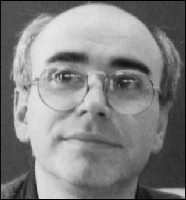 Moscow Institute of Railroad Engineering. He worked as a system
programmer (1986-89) and then as a research associate at the Institute
of Philosophy, Russian Academy of Sciences, where he became a graduate
student in 1990. In 1997 he defended his dissertation, which
focused on philosophical problems in the analysis
of cinema. Since 2004 he has been a senior research associate and
senior lecturer at the Russian State Humanities University (RGGU).
His book publications include Bohemia: The Experience of Community.
An Introduction to the Philosophy of the Asocial (2002) and
Metacinema (2003), with received a special prize from the Russian
Guild of Film Scholars in 2004. Amongst his articles are the
Introductions to Pier Paolo Pasolini's Theorem
(2002), Gilles Deleuze's Nietzsche and Philosophy (2003) and
Cinema-1: Movement-Image. Cinema-2: Time-Image (2004).
He has published in Cinema Notes (Kinovedcheskie zapiski),
Art of Cinema (Iskusstvo kino), New Literary Review (Novoe
literaturnoe obozrenie), The Blue Couch (Sinii divan),
and others. Several of his articles have been translated into
English, German, and French.
Moscow Institute of Railroad Engineering. He worked as a system
programmer (1986-89) and then as a research associate at the Institute
of Philosophy, Russian Academy of Sciences, where he became a graduate
student in 1990. In 1997 he defended his dissertation, which
focused on philosophical problems in the analysis
of cinema. Since 2004 he has been a senior research associate and
senior lecturer at the Russian State Humanities University (RGGU).
His book publications include Bohemia: The Experience of Community.
An Introduction to the Philosophy of the Asocial (2002) and
Metacinema (2003), with received a special prize from the Russian
Guild of Film Scholars in 2004. Amongst his articles are the
Introductions to Pier Paolo Pasolini's Theorem
(2002), Gilles Deleuze's Nietzsche and Philosophy (2003) and
Cinema-1: Movement-Image. Cinema-2: Time-Image (2004).
He has published in Cinema Notes (Kinovedcheskie zapiski),
Art of Cinema (Iskusstvo kino), New Literary Review (Novoe
literaturnoe obozrenie), The Blue Couch (Sinii divan),
and others. Several of his articles have been translated into
English, German, and French. |
|
 |
| |
Junior Research Scholar
Institute of Art History (St. Petersburg)
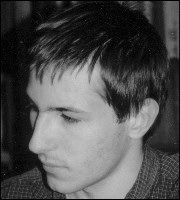 Peter Bagrov was
born in Leningrad, USSR. He became interested in film history while in
high school. He received his Master's degree in physics from the St.
Petersburg Polytechnical University in 2005. Since 2005 he has worked
as a junior research scholar at the Institute of Art History (St.
Petersburg) and has taught the history of Russian cinema at the St.
Petersburg University of Film and Television. He is working on his
Ph.D. project at the Institute for Cinema Studies (Moscow). Peter is a
member of the Editorial Board of
Cinema Notes [Kinovedcheskie zapiski] and Seans.
Since 1999 he has published more than 50 papers and written a number of
scripts for documentaries on film history for the Kultura television
channel. His main area of interests is Soviet film, theater, and art
history of the 1920s through 1950s. Peter Bagrov was
born in Leningrad, USSR. He became interested in film history while in
high school. He received his Master's degree in physics from the St.
Petersburg Polytechnical University in 2005. Since 2005 he has worked
as a junior research scholar at the Institute of Art History (St.
Petersburg) and has taught the history of Russian cinema at the St.
Petersburg University of Film and Television. He is working on his
Ph.D. project at the Institute for Cinema Studies (Moscow). Peter is a
member of the Editorial Board of
Cinema Notes [Kinovedcheskie zapiski] and Seans.
Since 1999 he has published more than 50 papers and written a number of
scripts for documentaries on film history for the Kultura television
channel. His main area of interests is Soviet film, theater, and art
history of the 1920s through 1950s. |
 |
| |
Graduate Student
University of Pittsburgh
Department of Slavic Languages and Literatures
Andrew Chapman received his B.A. in Russian from the University of
Rochester in 2004. He is currently a first-year graduate student
in the Department of Slavic Languages and Literatures at the University
of Pittsburgh. |
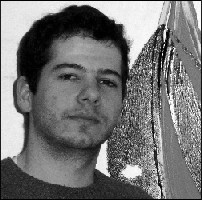 |
 |
| |
Director of the Program for Cultural Studies and faculty at the Slavic
Department
University of Pittsburgh
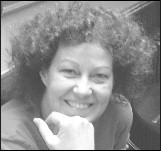 Publications include Soviet Hieroglyphics: Visual Culture in Late 20c.
Russia (1995); Endquote: Sots-Art Literature and Soviet Grand Style,
with
Marina Balina and Evgeny Dobrenko (2000); and Antimonies of Art and Culture: Modernity,
Postmodernity, Contemporaneity, with Terry Smith
and
Okwui Enwezor (2007). Publications include Soviet Hieroglyphics: Visual Culture in Late 20c.
Russia (1995); Endquote: Sots-Art Literature and Soviet Grand Style,
with
Marina Balina and Evgeny Dobrenko (2000); and Antimonies of Art and Culture: Modernity,
Postmodernity, Contemporaneity, with Terry Smith
and
Okwui Enwezor (2007).
Her work, with Vladimir Padunov and separately, has appeared in The
Nation, The
Washington Post, October, New Left Review, Sight and Sound, as well as
major
Russian cultural journals (Znamia, Voprosy literatury, Iskusstvo kino).
She has worked as a consultant for the Edinburgh Film Festival, the
Library
of Congress, and Public Broadcasting for several Frontline
documentaries and
was Executive Producer for a CD-Rom database on Russian cinema, Kino ottepeli (2002). She is Senior Associate Member at St. Antony's
(Oxford) and
Chair of the Board of Directors of the National Council on Eurasian and
East
European Research (NCEEER), the largest US grant agency for federal
funding
of basic research in the former second world.
|
 |
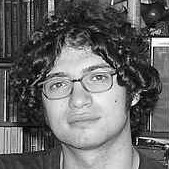 |
Carnegie Mellon University
Anton D'Auria is completing his
B.A. in Russian Studies and B.S. in Mathematics at Carnegie
Mellon University. He wrote on film for The Moscow Times
Go! Magazine in the summer of 2004 and has been curating
documentary films at Carnegie Mellon since 2004. He is
currently taking courses on Russian literature and history,
and researching turning points in the Stalinist Great
Terror. He has also done research in computer science at the
Language Technologies Institute at CMU and at Dartmouth
College.
|
 |
| |
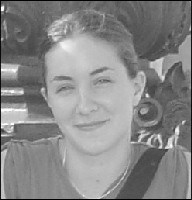 |
Graduate Student
University of Pittsburgh
Department of Slavic Languages and Literatures
Alyssa DeBlasio received a B.A. from Villanova University in Philosophy in
2003. She is currently a second-year graduate student in the Department
of Slavic Languages and Literatures at the University of Pittsburgh and a
co-editor of the journal Studies in Slavic Cultures. Alyssa's current
projects include research on contemporary Russian philosophy, early
Russian film, and ritual theory. |
 |
| |
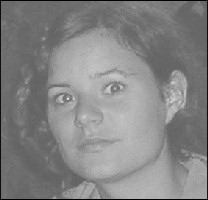 |
Graduate Student
University of Pittsburgh
Department of Slavic Languages and Literatures
Julie graduated from New York University in 2002
with a BA in Comparative Literature and Russian and Slavic Studies.
After working as an editorial assistant in New York on an encyclopedia
of Jews in Eastern Europe, she began a PhD program in Slavic Languages
and Literatures at the University of Pittsburgh. Her current research
interests include: the GULag, Yiddish culture, life-writing, propaganda
film and samizdat literature.
|
 |
Professor of History
University of California, Santa Cruz
Peter Kenez left Hungary in 1956 as a
20-year old. He received his B.A. from Princeton University and Ph.D.
in Russian history from Harvard University. He has been teaching at the
University of California Santa Cruz since 1966, where he is currently
Professor of History. His publications include Hungary Between
Hitler and Stalinism (2006), Cinema and Soviet Society from the
Revolution to the Death of Stalin (2nd expanded edition,
2000), A History of the Soviet Union from the Beginning to the End
(1999), Stenberg Brothers: Constructing a Revolution in Soviet Design
(with Christopher Mount, 1997), Varieties of Fear: Growing Up Jewish
under Nazism and Communism (1995), The Birth of the Propaganda
State: Soviet Methods of Mass Mobilization, 1917-1929 (1985),
Civil War in South Russian, 1919-1920 (1977), and Civil War in
South Russia, 1918 (1971). Princeton University and Ph.D.
in Russian history from Harvard University. He has been teaching at the
University of California Santa Cruz since 1966, where he is currently
Professor of History. His publications include Hungary Between
Hitler and Stalinism (2006), Cinema and Soviet Society from the
Revolution to the Death of Stalin (2nd expanded edition,
2000), A History of the Soviet Union from the Beginning to the End
(1999), Stenberg Brothers: Constructing a Revolution in Soviet Design
(with Christopher Mount, 1997), Varieties of Fear: Growing Up Jewish
under Nazism and Communism (1995), The Birth of the Propaganda
State: Soviet Methods of Mass Mobilization, 1917-1929 (1985),
Civil War in South Russian, 1919-1920 (1977), and Civil War in
South Russia, 1918 (1971). |
 |
| |
Graduate Studentt
University of Pittsburgh
Department of Slavic Languages and Literatures
Olga Klimova is a first year graduate student at the
Department of Slavic
Languages and
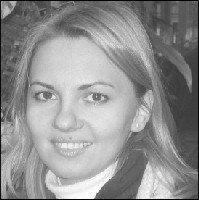 Literatures, University of Pittsburgh. She received her
Specialist degree in Cultural Studies from Belarusian State University,
Minsk, Belarus, and her Master's degree in Popular Culture from Brock
University, Canada, and in August 2005 defended her thesis
"The Encounter with The Real and the Post-Soviet Trauma: Fantasy
Construction in Russian Popular Cinema." Literatures, University of Pittsburgh. She received her
Specialist degree in Cultural Studies from Belarusian State University,
Minsk, Belarus, and her Master's degree in Popular Culture from Brock
University, Canada, and in August 2005 defended her thesis
"The Encounter with The Real and the Post-Soviet Trauma: Fantasy
Construction in Russian Popular Cinema."
Her research interests include cultural theory; gender and feminist
theories; Lacan and Zizek; Russian popular culture; post-Soviet cinema
and
much more.
Olga worked as a coordinator and a project manager at the Center for
Gender Studies of the European Humanities University, Belarus, in 1999
and
2001-2002.
She has taught a number of film and gender courses at the Department
of
Communication, Popular Culture and Film at Brock University, and
currently
teaches Russian language courses at the University of Pittsburgh's
Slavic
Department.
|
 |
| |
Professor of Slavic Languages and Literatures
University of California, Los Angeles
 David MacFadyen is a graduate of the
University of London and University of California,
Los Angeles. He is
Professor of Slavic Languages and Literatures at UCLA and has authored
books on subjects ranging from the poetry of Joseph Brodsky (Joseph
Brodsky and the Baroque, 1999; Joseph Brodsky and the Soviet Muse,
2000), to Russian popular songs (Red Stars: Personality and the
Soviet Popular Song after 1955, 2001; Èstrada?! Grand Narratives
and the Philosophy of the Russian Popular Song 1982-2000,
2001; Songs for Fat People: Affect, Emotion and Celebrity in the
Soviet Popular Song, 1900 to 1955, 2002), to animated and feature
films of the Soviet Union (The Sad Comedy of Èl'dar Riazanov: An
Introduction to Russia's Most Popular Filmmaker, 2003; Yellow
Crocodiles and Blue Oranges: Russian Animated Film after World War Two,
2004). David MacFadyen is a graduate of the
University of London and University of California,
Los Angeles. He is
Professor of Slavic Languages and Literatures at UCLA and has authored
books on subjects ranging from the poetry of Joseph Brodsky (Joseph
Brodsky and the Baroque, 1999; Joseph Brodsky and the Soviet Muse,
2000), to Russian popular songs (Red Stars: Personality and the
Soviet Popular Song after 1955, 2001; Èstrada?! Grand Narratives
and the Philosophy of the Russian Popular Song 1982-2000,
2001; Songs for Fat People: Affect, Emotion and Celebrity in the
Soviet Popular Song, 1900 to 1955, 2002), to animated and feature
films of the Soviet Union (The Sad Comedy of Èl'dar Riazanov: An
Introduction to Russia's Most Popular Filmmaker, 2003; Yellow
Crocodiles and Blue Oranges: Russian Animated Film after World War Two,
2004). |
 |
| |
PhD Candidate
University of Pittsburgh
Department of Slavic Languages and Literatures
 Gerald McCausland holds degrees from Middlebury College (BA,
Political
Science; MA Russian)
and the University of Massachusetts at Amherst (MA,
German). At the University of Pittsburgh he has taught courses in
Russian language and folklore as well as the history of Russian cinema.
His research interests include contemporary Russian culture and critical
theory, with particular emphasis on post-Soviet subjectivity and its
role in the formation of collective identities. His publications include
articles on Vladimir Sorokin, Viktor Pelevin, and Andrei Platonov, and
he is currently completing his PhD dissertation: The Post-Soviet
Condition: Cultural Reconfigurations of Russian Identity, at the
University of Pittsburgh. Gerald McCausland holds degrees from Middlebury College (BA,
Political
Science; MA Russian)
and the University of Massachusetts at Amherst (MA,
German). At the University of Pittsburgh he has taught courses in
Russian language and folklore as well as the history of Russian cinema.
His research interests include contemporary Russian culture and critical
theory, with particular emphasis on post-Soviet subjectivity and its
role in the formation of collective identities. His publications include
articles on Vladimir Sorokin, Viktor Pelevin, and Andrei Platonov, and
he is currently completing his PhD dissertation: The Post-Soviet
Condition: Cultural Reconfigurations of Russian Identity, at the
University of Pittsburgh. |
 |
| |
Faculty director for CAPA
Antithesis.
Rick is a 2000 graduate of Duquesne University, with a BA in sound
recording technology and jazz guitar performance. He is a partner
and engineer at Epigram 154 L.L.C Recording Studio, and has
engineered and produced a variety of CD releases. At CAPA High
School, he teaches recording technology, sound design, and live
sound technology. His current creative work included playing,
composing, and even singing with the Dirty Sunshine, G-Sus and the
12-Tone Apostles, and Transcending Angers Rudimentary Desire. |
 |
| |
 |
Visiting Assistant Professor
Bowdoin College
Elena Monastireva-Ansdell received her Ph.D. from
Indiana University. She is a Visiting Assistant Professor at Bowdoin
College where she teaches Russian culture, literature, and film. Her
publications on contemporary Russian film and Thaw cinema have appeared
in KinoKultura and The Russian Review. She enjoys the
serenity of sea-kayaking in her free time.
|
|
 |
| |
|
Faculty director for CAPA
Antithesis
Ben has a long history of creative involvement in Pittsburgh's music
community. Active as a saxophonist and composer, his current
ensembles include Thoth Trio, OPEK, Syrinx Ensemble, and Dust &
Feathers. He has previous played, recorded and toured with Water
Shed 5tet and Coal Train, among others. In 1996, he was awarded the
Pittsburgh Cultural Trust Creative Achievement Award, for his work
as composer and player. His composition commissions included a debut
by the Pittsburgh New Music Ensemble. He is currently on staff at
CAPA High School and Carnegie Mellon University, teaching music
technology, electronic music, scoring, and avant-garde techniques.
|
|
 |
| |
Associate Professor, Department of Slavic Languages
and Literatures
Associate Director, Film Studies Program
Director, Russian Film Symposium
Deputy Editor, KinoKultura
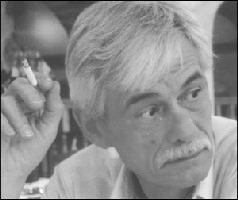 Padunov received his B.A. from Brooklyn College, and his M.A. and
Ph.D. in Comparative Literature at Cornell University. He has taught at
the University of Iowa and Hunter College, as well as in Germany and
Russia. Padunov received his B.A. from Brooklyn College, and his M.A. and
Ph.D. in Comparative Literature at Cornell University. He has taught at
the University of Iowa and Hunter College, as well as in Germany and
Russia.
Together with Nancy Condee, he directed the Working Group on
Contemporary Russian Culture (1990-93), supported by the American
Council of Learned Societies and the Social Science Research Council.
His work has been published in the US (The Nation, October, WideAngle),
the UK (Framework, New Left Review, New Formations), and Russia (Voprosy
literatury, Znamia, Iskusstvo kino). His areas of research include
Russian visual culture, narrative history and theory, film history.
Recent publications
"Storing and Restoring History: Gosfil'mofond and the 10th
Belye Stolby Archival Film Festival."
KinoKultura 12 (April
2006).
"Imperial Acorn —> National Oaks: The Eighth KinoForum."
KinoKultura 9 (July 2005).
"Stars Above Almaty: Kazakh Cinema Between 1998 and
2003."
KinoKultura 3 (Jan 2004).
"Moscow's Silver Anniversary: XXV Moscow
International Film Festival (20-29 June 2003)."
KinoKultura 1 ( July 2003).
"Subtropical Cinema: Kinotavr, Collective Heroes,
and Small Screens," with Nancy Condee.
KinoKultura 1 (July 2003).
"Views of the
Present As Visions of the Past,"
Iskusstvo kino 10, 1996.
"'Large Loose Baggy Monsters': The Poetics of
Excess in Contemporary Russian Culture" in Russian Literature of the
XX Century: Directions and Tendencies (Ekaterinburg: Ural State
Pedagogical University, 1996). |
 |
| |
 Undergraduate Student Undergraduate Student
University of Pittsburgh
Department of Linguistics
Varia Permyashkin is a Linguistics major in her third
year at the University of Pittsburgh. Currently, she is studying Modern
Greek as her fourth language and intends to study abroad in Rhodes,
Greece in the summer of 2006. This is her second year as an intern for
the Russian Film Symposium. |
 |
| |
PhD Candidate
University of Pittsburgh
Department of Slavic Languages and Literatures |
 |
| |
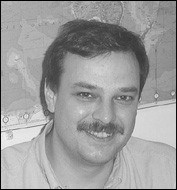 |
Assistant Professor, Department of Modern Languages
College of William and Mary
Alexander Prokhorov teaches Russian culture and
film at College of William and Mary. His research interests include
Russian visual culture, genre theory, and film history. His articles
and reviews have been published in Kinokultura, Slavic Review,
and Slavic and East European Journal. |
 |
| |
Graduate Student
University of Pittsburgh
Library Science
Tim is currently a library science graduate student in the University of
Pittsburgh's Information Science program and hopes to complete his
coursework in Russian literature and librarianship sometime in 2007. He
intends to pursue a career in Slavic bibliography.
|
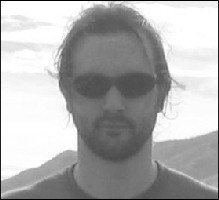 |
 |
| |
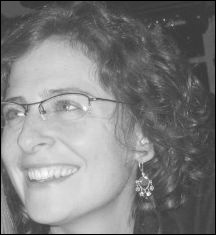 PhD Candidate PhD Candidate
University of Pittsburgh
Department of Slavic Languages and Literatures
Dawn
Seckler holds degrees from Colby College (BA, Russian Studies) and the
University of Pittsburgh (MA, Russian Literature). She is currently
working toward a doctorate in Russian cinema; her research focuses on
contemporary Russian cinema, with particular emphasis on film genre
theory and masculinity studies. |
 |
| |
 Yadviga Semikolenova is a PhD Candidate at the Department of
Economics, University of Pittsburgh. She is writing her dissertation on
issues of development of the oil sector in the former USSR. Her areas of
interest include applied microeconomics, industry studies, economics of
information and industrial organization. Yadviga Semikolenova is a PhD Candidate at the Department of
Economics, University of Pittsburgh. She is writing her dissertation on
issues of development of the oil sector in the former USSR. Her areas of
interest include applied microeconomics, industry studies, economics of
information and industrial organization.
Her academic awards and grants include Mellon Fellowship (2003-2004),
Thorn Teaching Award (2003), Short-Term Research Grant from Kennan
Institute (summer 2004), Teach and Research Grants from Economic
Education and Research Consortium (EERC) (Summer 2004 and Summer 2005).
She was a visiting scholar at Kiev-Mohyla Academy (Kiev, Ukraine) in
summer 2004 and Summer 2005 as well as at Eurasia Foundation-Azerbaijan
(Baku, Azerbaijan) in Spring 2004.
She has been volunteering for Russian Film Symposium since 2000.
|
 |
| |
Undergraduate Student
University of Pittsburgh
Dept. of Psychology and Dept. of Slavic Languages and Literatures
Natasha Sumetsky plans to receive her B.S. in Psychology and B.A. in Slavic
Languages and Literatures in April of 2007 and to attend graduate school
for psychology some time after that. This summer, she will be doing
research on the dichotomies of national and other identities in
Pittsburgh and New York City. |
 |
 |
| |
Film critic
ITOGI
Dilyara Tasbulatova was born
in Alma-Ata, Kazakhstan, where she graduated from school and worked in a
factory before being accepted into the Screenplay-Film Scholarship
section of the State Institute for Filmmaking (VGIK) in Moscow. After
graduation she
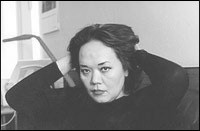 worked at the Kazakhfilm Studio and the journal New
Film. She moved permanently to Moscow in 1993 and worked for the
journal Ogonek, Channel One Television, and the newspapers
Novaia gazeta and Vecherniaia Moskva. She is currently the
film critic for the weekly news-magazine Itogi and covers the
Cannes, Berlin, and Venice Film Festivals. She has written almost two
thousand articles on cinema and has received awards for "Best Film
Journalist in Russia" (2002) and "Best Film Critic in Russia" (2000). worked at the Kazakhfilm Studio and the journal New
Film. She moved permanently to Moscow in 1993 and worked for the
journal Ogonek, Channel One Television, and the newspapers
Novaia gazeta and Vecherniaia Moskva. She is currently the
film critic for the weekly news-magazine Itogi and covers the
Cannes, Berlin, and Venice Film Festivals. She has written almost two
thousand articles on cinema and has received awards for "Best Film
Journalist in Russia" (2002) and "Best Film Critic in Russia" (2000). |
|